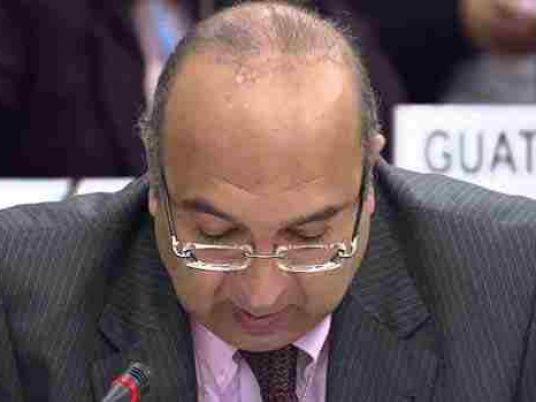
Egypt's envoy to the UN Amr Ramadan has categorically rejected claims of four European countries during the 30th session of the UN Human Rights council, saying they are simply a repeat of statements that had been made during previous sessions.
All such claims had been refuted by Egypt in the previous sessions, Ramadan said Wednesday.
The rule of law is the cornerstone of governance and the judicial independence guarantees the protection of human rights and basic freedoms in Egypt, as stated in the Egyptian constitution, Ramadan said.
He made it clear that the death penalty is only applicable to cases of extremely dangerous crimes, stressing that it is in line with Egypt's international commitments under Article VI of the International Covenant on Civil and Political Rights.
Citizens in Egypt are not tried in military courts except in cases that involve direct attacks on military personnel or facilities, Ramadan said.
He stressed that detainees are treated with dignity.
Ramadan told the session that the detainees are arrested for violating law and not for their profession.
The Egyptian envoy also denied claims of forced disappearance, dismissing them as baseless.
An Egyptian team is in Geneva to explain the truth about complaints filed against Egypt in this regard, Ramadan said.
He was cynical about the fact that countries notorious for human rights violations (in terms of racial discrimination, xenophobia, disdain for religions, torture, etc..) are the very ones that criticize others.
Ramadan cited the British law, which prohibits articles that can be misinterpreted as pro-terrorism, noting that this law could be seen as a violation of human rights. This proves the double standard policies, he noted.
Under the Dutch terrorism law, convicted defendants are sentenced to 30 years in prison, he added.
Instead of criticizing Egypt, those countries should have better condemned extremist actions committed by Israelis in the occupied Palestinian territories and around the Al Aqsa Mosque, the Egyptian envoy said.
They could have stood up for promoting human rights and respecting freedoms when dealing with refugees crossing into their lands, Ramadan added.




